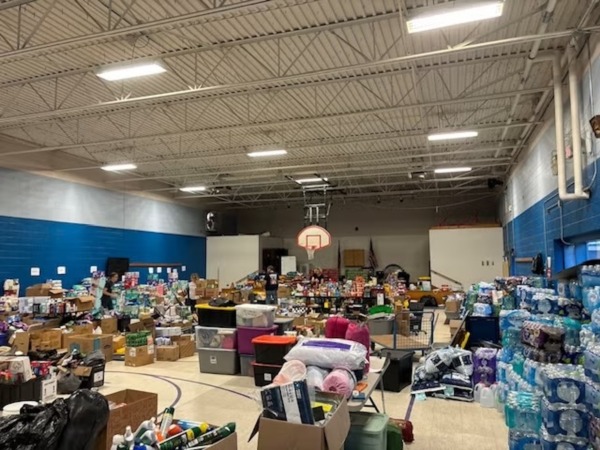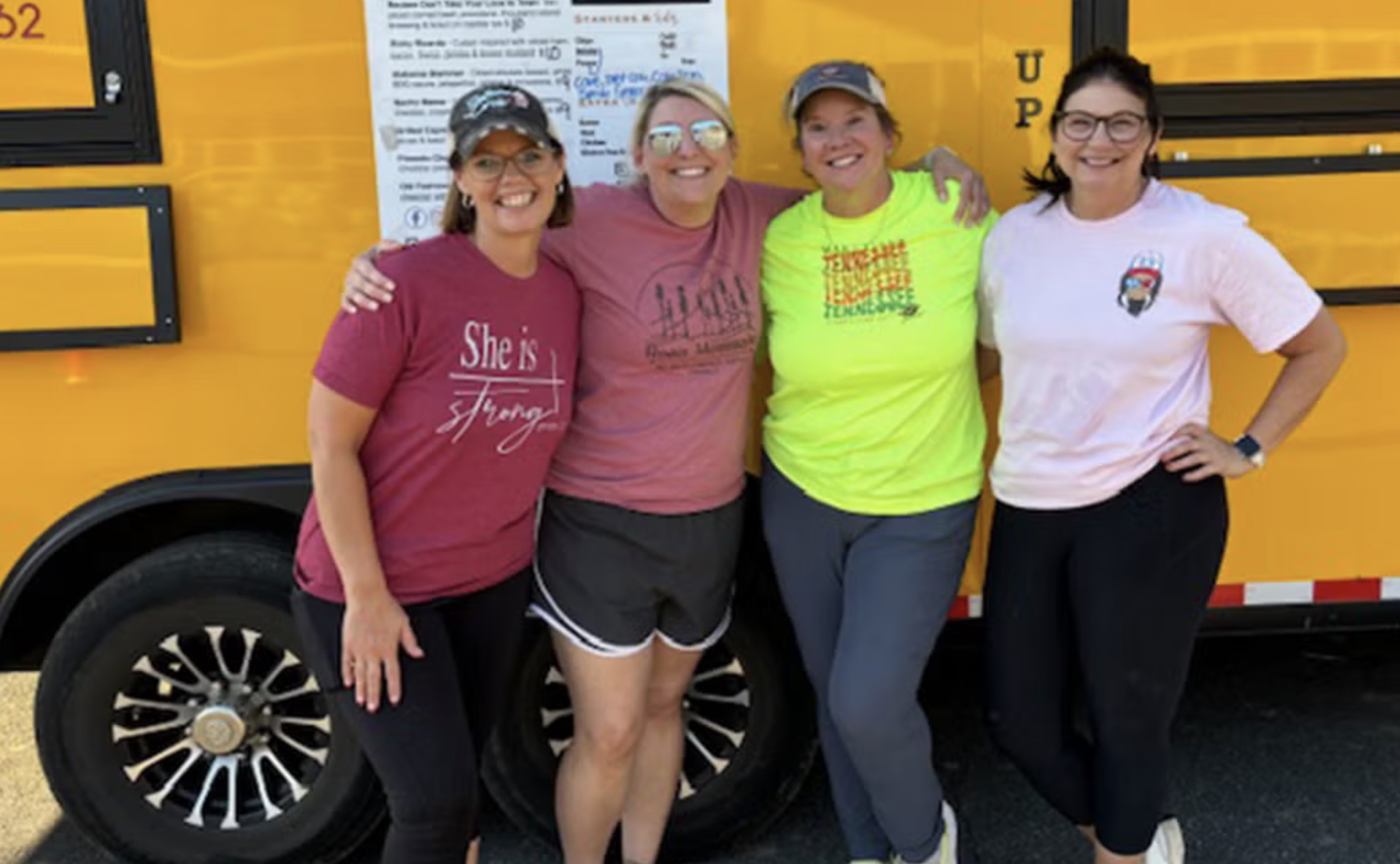When Hurricane Helene hit Mitchell County in September 2024, principal Amber Young (’21 M.S.A.) immediately went into action to protect her school.
Young and her parents put down sandbags at each entrance to stop water from coming into Gouge Primary School. They saved teachers’ lesson plans, materials, decor, and furniture. Once she regained cell service, she reached out to students to see if they had water, food, and power.
While Gouge only has 145 students and 17 teachers, assistants, and staff, the building became a community center for relief and recovery to help Mitchell County.
That light bulb moment
Growing up, Young wanted to become a teacher and drew inspiration from her uncle, who taught mathematics. She spent the first 12 years of her career as a physical education teacher, then enrolled in the Master of School Administration program at the UNC School of Education to help students in a larger way.
“I love having that light bulb moment when you work with a student who is trying their best, and it finally clicks,” said Young. “I care about people and want to see them succeed. I’ve been given so much in my life, the least I can do is pay it forward and give kids the experiences I had in school.”
Carolina’s MSA program provides flexibility for working educators who want to move into a school leadership role. Most MSA graduates assume leadership positions in schools, while some work in state, regional, or national organizations that focus on educational professional development, research, or policymaking. By offering a blend of online courses and in-person sessions, the program’s hybrid, flexible design enables educators to keep working in their current roles and create impact in the lives of their K-12 students.

The program also features a year-long, full-time, paid assistant principal internship, providing students an opportunity to apply their leadership skills. Completion of the program leads to eligibility for licensure as a K-12 principal from the North Carolina Department of Public Instruction and qualifies individuals for principal licensure in most states.
“The program teaches you to be flexible and work under stress,” said Young. “It teaches you to be calm, cool, and collected on the outside.”
Disaster response
Young used the skills she developed in the MSA program in response to the hurricane, setting up her school as a distribution site. Mitchell County residents came to the school to get water, food, pet and livestock supplies, diapers and hygiene products, medicine, clothes, blankets, heaters, and generators.
It was like “walking into a Walmart or Target,” Young said.
Gouge teachers made “adventure packets” for the students so they could have something fun to do, to learn, and also to distract themselves. Those packets also included food, clothes and blankets for students and their families.
Afterward, the community continued to receive support from outside sources. For Halloween, USA Up Star and its owner Klay South came to Gouge Primary to donate candy so the community could hold a trunk or treat. Josh’s Farmers Market in Mooresville brought pumpkins so each student could have one for Halloween.
Months later, Patriot Relief raised over $10,000 for kids to go Christmas shopping with their families, and Christmas presents were donated for students.
“This experience shows you some good can come out of a disaster. I think people now understand why Mitchell County is so special,” said Young. “These kids who love and care about this community now know they are loved and cared about, too.”
This feature has been adapted from a web story written by the UNC-Chapel Hill’s University Communications and Marketing.
